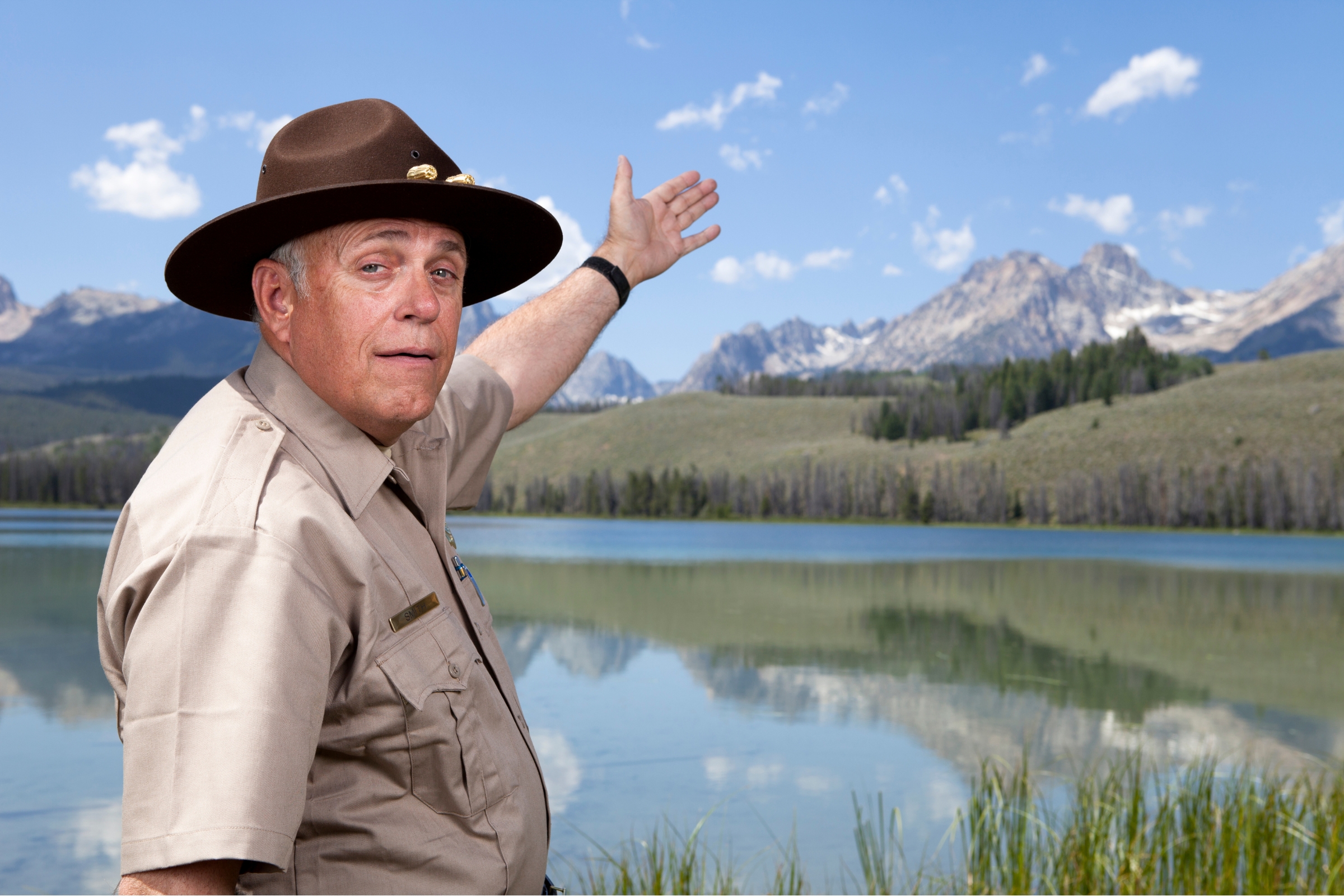When considering if being a park ranger is the right career path, it’s important to look at the varied responsibilities it entails. Park rangers conduct educational programs, engage in wildlife management, and serve as law enforcement officers to protect our parks’ natural beauty. They often perform the role of a game warden, ensuring the safety of wildlife and plant species within their jurisdiction. The job as a park ranger can be a government job, whether at federal or state levels, offering health insurance and health benefits, which are significant perks. However, there are potential dangers and physical activities involved that one must be prepared for. The benefits of being a park ranger include job security and the opportunity to make a meaningful impact on the environment and visitor experiences.
Understanding the full scope of this profession requires a look into its challenges and rewards. While the job of a park ranger offers the chance to work in some of the most stunning environments, it also demands a high degree of dedication to both public service and the protection of natural resources. For those who are passionate about the outdoors and conservation, the role can be incredibly fulfilling, but it’s not without its hardships. Whether dealing with isolation in remote locations or the rigors of seasonal work, the job requires a specific mindset and adaptability.
Understanding the Role of a Park Ranger
The park ranger’s role is multifaceted, encompassing the protection of natural and cultural resources within park boundaries. They are guardians of our natural heritage, tasked with preserving the beauty and integrity of the environment for future generations. As a game warden, a park ranger also has the responsibility to enforce laws that safeguard wildlife from poaching and other illegal activities. This role requires a deep understanding of conservation principles and a commitment to upholding the balance between human enjoyment and environmental preservation.
Essential Duties in the Day-to-Day
A typical day for park visitors might include exploring trails or attending guided tours, and it’s the park ranger’s duty to ensure these experiences are enjoyable and safe. These guided tours are not only a chance to showcase the park’s natural beauty but also serve as educational moments, where rangers share their knowledge of the ecosystem and its inhabitants. The daily tasks of a ranger also include maintenance of trails, monitoring wildlife health, and interacting with visitors to provide information and assistance, all while keeping the park’s environment pristine.
The Significance of Environmental Stewardship
Being a park ranger is more than a job; it’s a commitment to environmental stewardship. Rangers are on the frontline of protecting ecosystems and ensuring that the delicate balance of nature is maintained. This vital role involves not only the preservation of landscapes and wildlife but also educating the public about the importance of conservation. Through their work, park rangers inspire others to appreciate and respect the natural world, fostering a collective sense of responsibility for our planet’s health and longevity.
Balancing Public Service with Natural Resource Protection
For a park ranger, the mission of protecting wildlife and natural resources goes hand in hand with serving the public. Rangers are tasked with the challenge of managing human activities to minimize impact on the environment while providing a safe and educational experience for visitors. This balance is critical to ensure that while people enjoy the wonders of nature, the ecosystems within the parks remain undisturbed. Rangers must be adept at communicating the importance of conservation while facilitating a welcoming atmosphere for all who come to explore.

The Upsides of Park Ranger Life
The life of a park ranger is one that is deeply intertwined with the natural world, providing a unique work environment that many find incredibly rewarding. The job allows for a closeness to nature that is unparalleled in most other professions, offering a daily immersion in the wonders of the great outdoors. From the grandeur of towering forests to the serene beauty of desert landscapes, rangers get to experience it all while playing a crucial role in the preservation of these treasures.
The Satisfaction of Promoting Conservation
Park rangers play a crucial role in the preservation of historical buildings and natural landmarks. Their dedication to conservation efforts ensures that these irreplaceable elements of our heritage are maintained for future generations to enjoy. The sense of satisfaction that comes from contributing to the safeguarding of our nation’s history and natural beauty is a significant motivator for many in this field, making the job much more than just a means to a paycheck.
Opportunities for Learning and Skill Development
The diversity of wildlife and plant species that park rangers encounter is not only a testament to the richness of our ecosystems but also provides continuous learning opportunities. Rangers are often engaged in research, habitat restoration, and species monitoring, which allows them to develop a broad range of skills. This aspect of the job fosters professional growth and keeps the work engaging, as there is always something new to learn about the natural world.
Evaluating the Challenges Park Rangers Face
While the role of a park ranger comes with many rewards, it is not without its challenges. Rangers are often called to be adaptable, resourceful, and resilient in the face of various hardships. From dealing with the unpredictability of nature to managing the expectations of park visitors, rangers must navigate a complex set of responsibilities. It is important for those considering this career to understand both the highs and lows that come with the territory.
Isolation and Working in Remote Locations
One of the realities of the job is the potential for isolation when working in remote locations. Park rangers may find themselves stationed far from urban centers, sometimes with limited access to amenities and social interactions. This aspect of the job can be challenging for some, as it requires a level of self-sufficiency and comfort with solitude. However, for those who cherish peace and quiet, these remote locations can offer an unparalleled sense of tranquility and connection to the wild.
The Physical and Environmental Risks Involved
Park rangers are often engaged in physical activities that can pose risks, such as patrolling rugged terrain, conducting search and rescue operations, or managing wildlife encounters. The job demands a good level of fitness and awareness of environmental hazards. It’s essential for rangers to be prepared for the physical demands of the job, which can include long hikes, exposure to extreme weather, and the need for swift response in emergencies.
Navigating Bureaucracy in Conservation Efforts
To effectively educate the public and promote wildlife conservation, park rangers must often navigate the complexities of bureaucracy. Conservation efforts can be hampered by red tape and policy restrictions, making the work of rangers that much more challenging. Despite these obstacles, rangers continue to advocate for the protection of natural resources, pushing for change and improvement within the system to ensure the long-term health of our parks and wildlife.
Seasonal Employment and Job Security Concerns
For many park rangers, seasonal employment is a reality of the job, leading to concerns about job security. The fluctuating need for rangers based on tourist seasons can make it difficult to find stable, year-round employment. This can be particularly challenging for those who seek consistent work and financial stability. Prospective rangers should be prepared for the possibility of seasonal work and consider how this might impact their career and lifestyle choices.

The Job’s Impact on Personal and Professional Growth
Being a park ranger offers unique opportunities for personal and professional growth. As stewards of wildlife conservation, rangers play a pivotal role in preserving natural habitats and species. This responsibility fosters a deep connection to the environment and a sense of purpose that can be personally fulfilling. Professionally, rangers develop a comprehensive understanding of conservation efforts, which can enrich their expertise and enhance their career prospects in the field of environmental science.
Career Advancement and Longevity in the Field
For those passionate about the great outdoors, a career as a park ranger can be quite rewarding. With dedication and experience, rangers can advance to positions of higher responsibility, such as park manager or conservation specialist. Job security is often tied to government funding and public interest in conservation, which can fluctuate. However, those with a strong performance record and a commitment to ongoing education in the field may find long-term employment and advancement opportunities.
The Rewards of Enhancing Visitor Experiences
Park rangers have the unique privilege of enhancing the experiences of park visitors. Whether leading guided tours, conducting educational programs, or simply offering helpful advice, rangers can make a visitor’s experience memorable. The positive feedback and appreciation from the public can be deeply gratifying, reinforcing the ranger’s role in making natural treasures accessible and enjoyable for all.
These interactions also provide an avenue for rangers to share their passion for the environment, sparking interest and appreciation for nature in others. The ability to influence public perception and foster a conservation ethic in visitors is one of the many intangible rewards that come with the job.
Work Environment and Lifestyle Considerations
Being a park ranger involves a dynamic work environment that is as challenging as it is rewarding. Rangers often spend their days outdoors, traversing diverse landscapes and encountering a variety of wildlife. The job requires a deep appreciation for nature and the ability to adapt to changing conditions. Rangers must be prepared for the rigors of working in varied weather conditions, from scorching heat to freezing cold, which can impact not only their work but also their lifestyle.
The Rigors of Varied Weather Conditions
Weather conditions can vary greatly in a park ranger’s workplace. From snowstorms to heatwaves, rangers face the elements head-on as part of their daily responsibilities. This aspect of the job requires physical endurance, resilience, and the ability to remain vigilant and responsive to environmental changes. It’s crucial for rangers to be well-equipped and trained to handle the challenges that weather can present.
Work-Life Balance and Seasonal Variations
Seasonal variations significantly influence a park ranger’s work-life balance. During peak seasons, rangers may work extended hours, weekends, and holidays to accommodate the influx of visitors. Conversely, the off-season may offer more downtime but can also come with reduced hours or temporary layoffs. Rangers must be flexible and able to adapt to these seasonal changes while managing their personal lives and commitments.
Nevertheless, many rangers find that the unique nature of their work, set against the backdrop of the country’s most beautiful landscapes, compensates for the irregularities in their schedules. The ability to connect with nature and engage in outdoor activities during one’s workday is an enviable aspect of the job that many in other professions do not enjoy.
Ensuring Safety and Enforcing Park Regulations
One of the primary duties of a park ranger is to ensure visitor safety and enforce park regulations. This responsibility is crucial in maintaining the delicate balance between public access and natural resource protection. Rangers are trained to handle emergencies, provide first aid, and educate visitors on safety protocols, all of which contribute to a safe and enjoyable park experience for everyone.
Addressing Frequently Asked Questions About Park Rangers
Many people wonder about the qualifications required to become a park ranger and the nature of daily duties. A bachelor’s degree in a related field is often necessary, along with strong communication skills and a knack for visitor interaction. These components are essential for engaging with park visitors and providing educational experiences that promote conservation and safety.
1. Career qualifications and education
To pursue a career as a park ranger, one typically needs a bachelor’s degree in environmental science, biology, or a related field. This educational background provides a solid foundation for understanding the complexities of natural ecosystems and the principles behind wildlife conservation. Moreover, specialized training in areas such as law enforcement, fire management, or search and rescue can be beneficial and, in some cases, required depending on the specific role within the park service.
Continued learning and professional development are also crucial for career growth. Rangers are encouraged to participate in workshops, certifications, and other educational opportunities to stay current with best practices in conservation and park management.
2. Common misconceptions about the job
Some common misconceptions about being a park ranger include the idea that the job is always tranquil and leisurely. In reality, rangers often face physically demanding tasks, unpredictable situations, and the need to be constantly vigilant. While they do spend time in beautiful settings, their work goes beyond simply enjoying the scenery—it’s an active role that requires dedication and a diverse skill set.
3. The reality of daily responsibilities and duties
The daily responsibilities of a park ranger are varied and can include conducting guided tours, maintaining trails, and managing natural resources. Rangers also engage with park visitors, offering educational talks and ensuring that everyone adheres to park guidelines. This hands-on approach to managing public lands is both challenging and rewarding, as rangers directly contribute to the protection and enjoyment of these spaces.
4. Charting a path: is this career right for you?
Deciding to become a park ranger is a significant choice that should align with your personal values and job preferences. It’s a career that combines environmental stewardship with public service, suited for those who cherish nature and wish to dedicate their professional lives to its preservation and appreciation.
5. Reflecting on personal values and job preferences
As you consider a career as a park ranger, reflect on your passion for nature and commitment to conservation. Are you drawn to a job that allows you to be outdoors, engaging directly with natural habitats? Do you have a desire to educate others and promote sustainable practices? If these aspects resonate with you, then a career in park management might be the right path.
It’s also important to consider your preferences for work environment, daily tasks, and the potential for irregular hours. A ranger’s job can be physically demanding and sometimes solitary, but also immensely rewarding. Make sure your job preferences align with the unique aspects of this role.
6. Essential traits for success in park management
To succeed in park management, you’ll need a combination of passion for the environment, physical fitness, and strong interpersonal skills. The ability to work independently, as well as part of a team, is essential. Effective communication, problem-solving abilities, and a proactive attitude are also key traits. If you embody these qualities and are ready for a challenging yet fulfilling career, park management could be an excellent fit for you.
The Verdict: Is Being a Park Ranger a Good Job?
Ultimately, determining whether being a park ranger is a good job depends on your personal values and what you seek in a career. Park rangers enjoy a multitude of benefits, such as immersion in the United States’ stunning natural landscapes and the satisfaction of educating the public about environmental conservation. In this role, you have the opportunity to work in various settings, from remote mountain areas to urban historical sites, all while maintaining national parks and protecting historical treasures. However, it’s important to consider the aspects of the job that might be challenging, like seasonal employment, manual labor, and working on weekends and holidays. Reflect on these points to see if this path aligns with your vision for a rewarding career.





